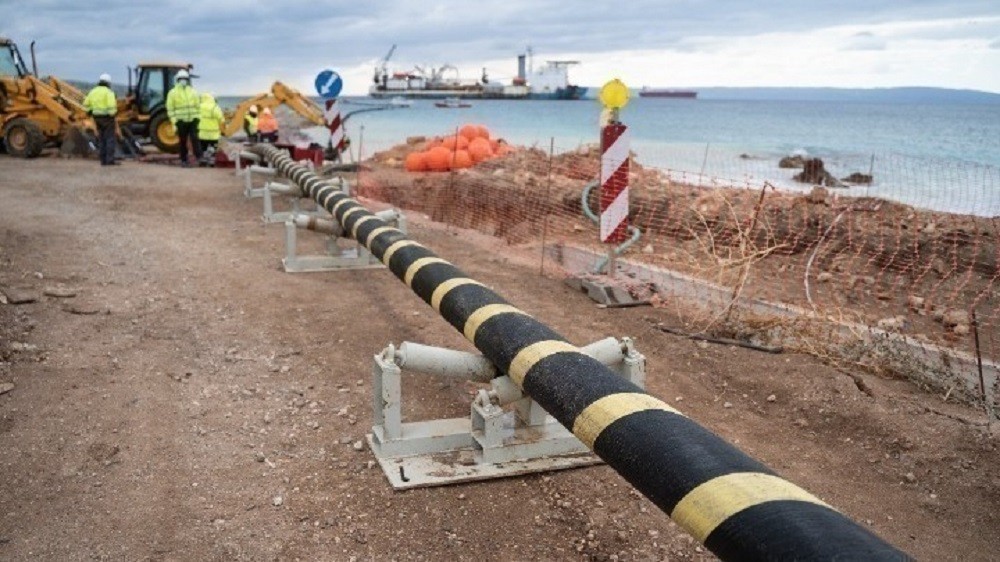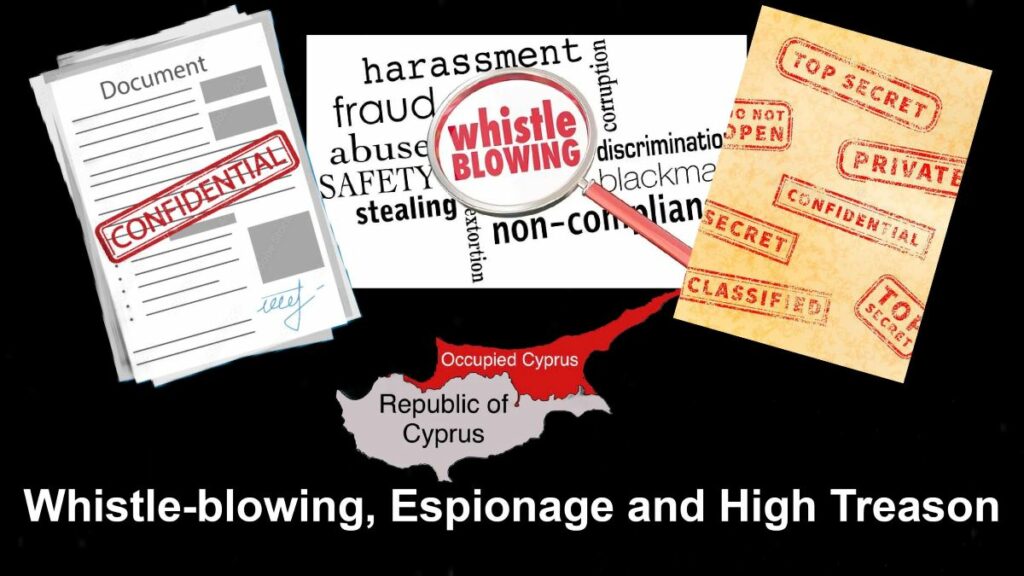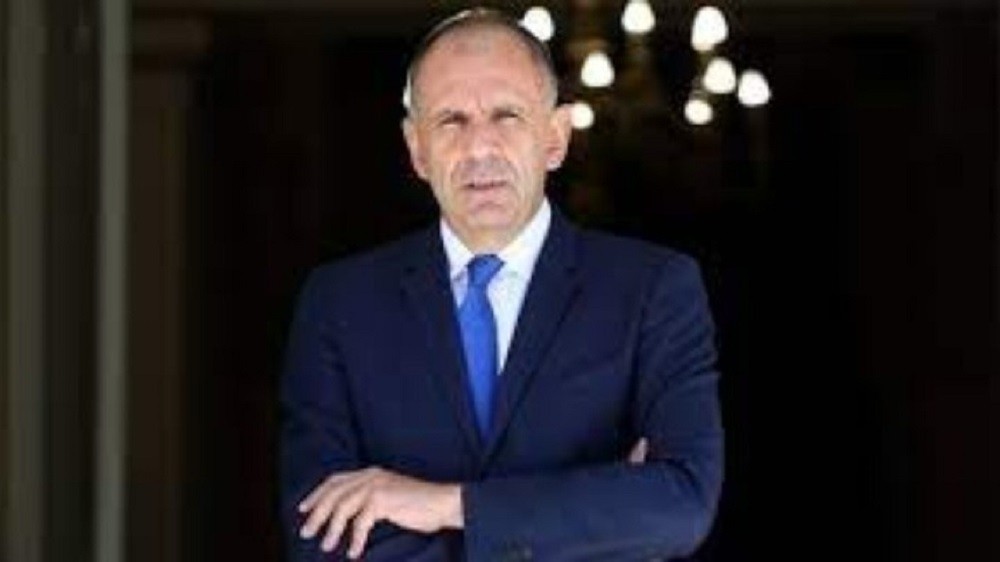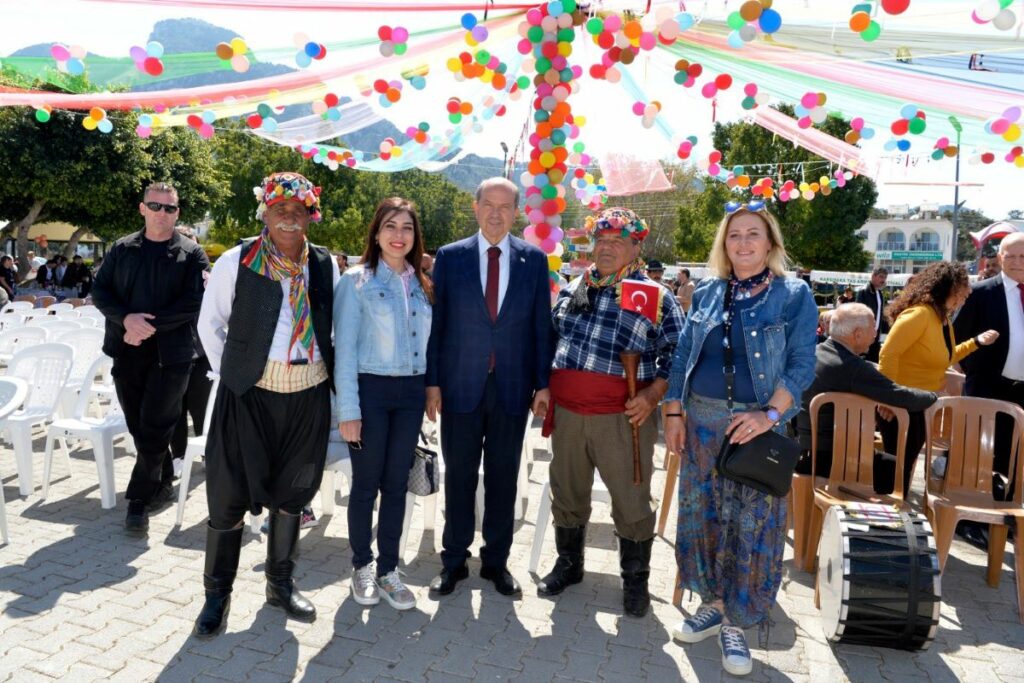
#Tags:
CyprusAnastasiadesΜακάριος ΔρουσιώτηςHarry TheocharousWhistle-blowingEspionageHigh TreasonWhistle-blowing, Espionage and High Treason. Does one complement the other in the name of revealing “corruption”?

The illegal occupation of Cyprus, confidential documents, private secret meetings, the betrayal by its own citizens and acts of high treason. Photo by @TheocharousH
Since 2012, almost one billion dollars have been awarded to whistle-blowers in the US alone, mainly concerning employees that reveal wrongdoing activities in companies or public organizations to the media, the police or the government. Whistleblowing, however, can be deemed illegal if the information revealed threatens the security of the country.
Leaking unauthorized and confidential government information could lead to disastrous situations especially when the country concerned is involved in various crucial processes with another country it has an ongoing conflict with. A good example is the Republic of Cyprus with Turkey.
Cyprus has been illegally occupied by Turkey since 1974, five days after the senseless coup d’état performed by the then dictatorial forces of Greece, which gave Turkey a flimsy excuse to invade.
Many attempts have been made to reach a viable solution, but Turkey’s intransigence has blocked all efforts from bearing fruit, hence the status quo.
In November 1983 Turkey defied international law again ignoring all United Nations Security Council resolutions concerning Cyprus by illegally declaring the land they invaded as the illegal “Turkish Republic of Northern Cyprus”. The Security Council immediately adopted resolution 541 which basically called upon all States not to recognize any Cypriot State other than the Republic of Cyprus.
Turkey’s violations and threats against Cyprus have increased since then, making the situation more complicating and dimming prospects of a viable and fair solution. What does the Cyprus issue have to do with whistleblowing, espionage and high treason though?
A few days ago, Turkish government backed media and other nationalistic elements triumphantly published articles referring to a book written by a Greek Cypriot journalist who basically blames his own and backs Turkey’s narrative for the stalemate in negotiations.
The journalist’s book in question is “Crime in Crans Montana” which was initially published in Greek and caused a bit of confusion amongst his dedicated bibliophiles on who was to blame at the 2017 Cyprus talks that took place in Crans Montana, Switzerland.
In his book which is now available in Turkish too, most probably after requesting it to be published in that language, he clearly points the finger to the Greek Cypriot delegation blaming the president of the Republic of Cyprus Mr Nicos Anastasiades and his team for failing to reach a settlement.
He refers to secret meetings at the Swiss resort between Turkey’s Foreign Minister Mr. Mevlut Cavusoglu and President Anastasiades and refers to secret documents of troop withdrawal presented by Turkey to the United Nations Secretary General Mr. Antonio Guterres. The journalist justifies all this via a “friend of a friend”.
Although the Turks doubt his “revelations”, they are using all these farfetched fantasies against the Greek Cypriots for obvious reasons.
Who is this author and why is he so obsessed with the Cypriot government?
Makarios Drousiotis is a journalist and the author of these so called “revelations”. He was a close aide of the president of the Republic of Cyprus Mr. Nicos Anastasiades and the Cypriot ex-European Commissioner for Crisis Management Mr. Christos Stylianides who currently happens to be Greece’s Minister for the Climate Crisis and Civil Protection.
In February 2013 Makarios was appointed by the president of the Republic of Cyprus to undertake a position at the presidential palace which gave him access directly to Mr. Anastasiades and remained at this very crucial post until the end of 2014 where he followed ex-EU Commissioner Stylianides in Brussels who was prompted by the Cypriot president.
During Makarios’ twenty-month tenure at the presidential palace, he managed to gather information ranging from classified documents to minutes of cabinet meetings and records of everything the president privately discussed with his associates.
He alleges that most of the cabinet ministers and people he dislikes are involved in various scandals without being able to prove any of them.
Why would one act in this manner and take advantage of the president’s trust and then use it against him a few years later. Why didn’t he reveal all the wrongdoings while they were taking place and why publish them in his books rather than reporting to the police, the relevant authorities or even to EU bodies dealing with government officials’ illegal activities?
What purpose do the journalist’s “revelations” serve and why through his books? If his intentions were truthful, why did he not report everything at the time of their occurrence? It is very important to note that until 2020 the journalist never mentioned anything about what he “revealed” in his books concerning the events that took place between 2013 to 2017.
*Harry Theocharous is a former pilot currently dealing with aviation research and consulting with vast interest in geopolitics
Ακολουθήστε τη HELLAS JOURNAL στη NEWS GOOGLEPM Mitsotakis: The reunification of the Parthenon Sculptures is possible

